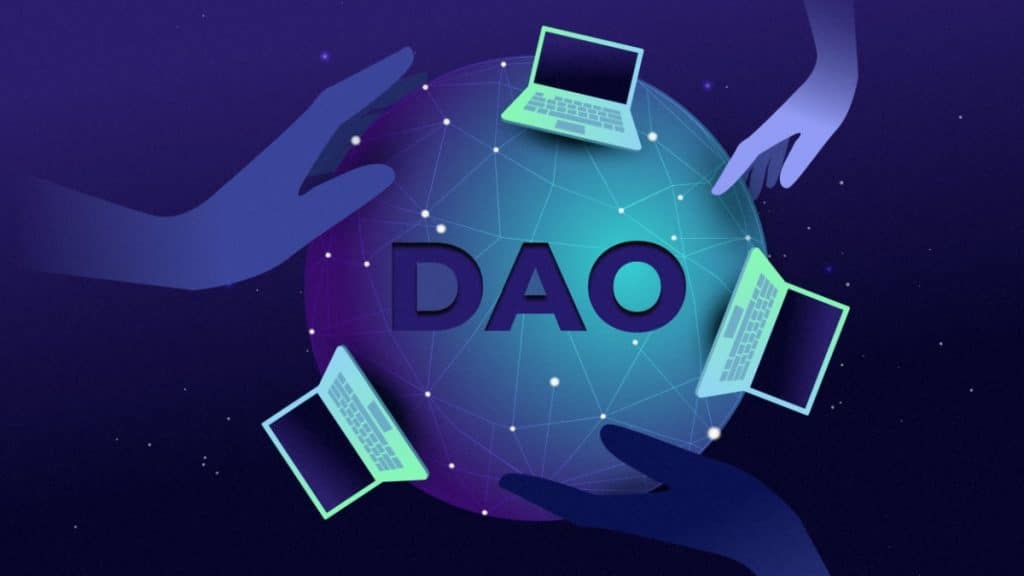The fusion of Artificial Intelligence (AI) with Decentralized Autonomous Systems (DAOs) offers groundbreaking potential in reshaping technological landscapes. Yet, as with any merger of powerful technologies, it comes with its set of promises and challenges. When the time comes, you’ll need to choose a trustworthy exchange like Voltix Edge to purchase or sell cryptocurrencies.
Core Concepts
Artificial Intelligence, often abbreviated as AI, represents a vast field of computer science dedicated to the creation of machines capable of mimicking human intelligence. Unlike traditional software, which follows strictly defined algorithms and instructions, AI systems learn, adapt, and evolve based on the data they encounter. They are designed to handle complex tasks, ranging from recognizing patterns in large datasets to making informed decisions in uncertain environments.
Decentralized Autonomous Systems, commonly known as DAOs, introduce a novel approach to organizational and systemic structures, eschewing traditional centralized control in favor of distributed authority. At the heart of a DAO is the principle of decentralization, which distributes power among its members or nodes rather than concentrating it in a single entity or authority. This means that decisions in a DAO are typically made through consensus mechanisms, leveraging the collective intelligence and inputs of all members. The “autonomous” aspect of DAOs is equally crucial. Once the rules are established, the system can operate without centralized control, making it resistant to single points of failure and external interference. In essence, DAOs represent a radical departure from traditional hierarchical systems, promising a more transparent, equitable, and resilient model for various applications.
Benefits of Integrating AI into DAOs
The convergence of AI with Decentralized Autonomous Systems (DAOs) represents a compelling intersection of two revolutionary technologies. One of the most prominent advantages is the enhancement of decision-making processes. DAOs, inherently reliant on consensus mechanisms, can sometimes grapple with the challenge of processing vast amounts of data to arrive at informed conclusions. Here, AI plays a pivotal role by analyzing extensive datasets, identifying patterns, and providing predictive insights. By doing so, AI helps DAOs make more informed decisions, rooted in data-driven logic rather than solely on human intuition or sentiment.
Moreover, the integration of AI bolsters security and fraud detection within DAOs. Decentralized systems, by nature, require robust security protocols to protect against malicious attacks and to maintain trust within the network. AI’s ability to quickly identify anomalies, unusual patterns, or potentially fraudulent activities can serve as an invaluable tool for DAOs. As these systems continuously learn and adapt, they become better equipped to preemptively detect and respond to threats, thus enhancing the overall trustworthiness of the DAO.
Lastly, AI promotes operational efficiency within DAOs. Manual oversight and intervention in decentralized systems can be cumbersome and inefficient, especially when dealing with complex tasks or large-scale operations. AI’s automation capabilities can streamline many of these processes, ensuring tasks are completed more rapidly and with fewer errors. Whether it’s optimizing resource allocation, facilitating smoother transactions, or automating routine tasks, the fusion of AI with DAOs paves the way for a more efficient and agile decentralized system.
Challenges and Considerations
The fusion of AI with Decentralized Autonomous Systems (DAOs), while promising, is not devoid of complexities. One of the most pressing concerns revolves around the ethical implications of this amalgamation. Decentralization champions the dispersion of power, ensuring no single entity has unilateral control. However, integrating AI, which requires a certain degree of centralized decision-making algorithms, raises concerns about the balance between decentralized governance and centralized AI control. Ensuring that the AI does not inadvertently reintroduce centralized biases or control is imperative to maintain the very ethos of decentralization.
Furthermore, the intersection of AI and DAOs brings forth privacy considerations. DAOs are built on trust and transparency, but AI’s need for data can sometimes infringe upon user privacy. The challenge is to ensure that AI algorithms respect and protect individual privacy, even as they learn from data interactions within the DAO. Striking the right balance between data utilization for AI and safeguarding user information is a pivotal concern.
Technically, the integration of AI within DAOs is not without hurdles. Current barriers include scalability issues, where the demands of advanced AI processes might strain the capacities of decentralized systems. Moreover, interoperability challenges arise when trying to ensure that AI algorithms work seamlessly across various decentralized platforms and systems.
Economically, the cost implications of embedding AI into DAOs cannot be overlooked. The development, training, and maintenance of AI models can be resource-intensive. DAOs, especially nascent ones, might grapple with the financial and computational costs of implementing advanced AI. Additionally, the economic trade-offs between the efficiencies provided by AI and the costs of its integration need careful evaluation.
Conclusion
While AI’s integration with DAOs promises enhanced efficiency, decision-making, and security, it’s crucial to navigate the associated challenges mindfully. As both technologies evolve, their harmonious collaboration could redefine the future of decentralization.

